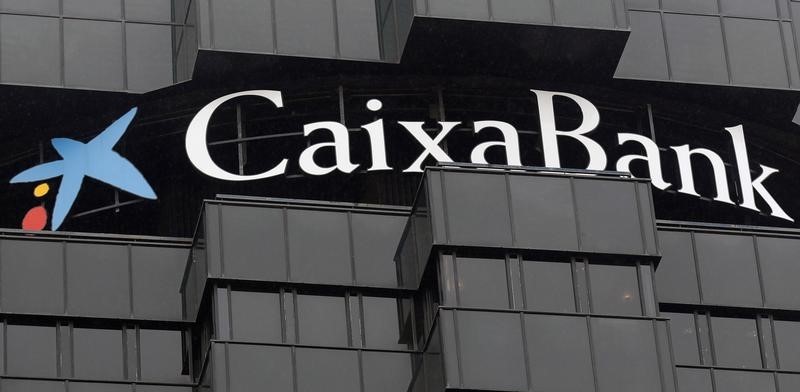This post was originally published on this site
https://i-invdn-com.akamaized.net/news/LYNXMPEB2E058_M.jpg
Investing.com — Talks on a merger that would create the largest bank in Spain put a rocket under the chronically unloved European bank stock sector on Friday, reviving hopes of a wave of consolidation that would help ease nagging doubts about financial stability in the region.
Shares in Bankia (MC:BKIA) and Caixabank (MC:CABK) rose 26% and 12.7% respectively, after the third- and fourth-largest Spanish banks by assets said in a statement to the stock exchange after the close on Thursday they had held talks examining the possibility of an all-share deal. The news comes as Spain wrestles with a surge in Covid-19 infections after a stillborn summer tourist season that proved impossible to manage safely. The country had already had one of the longest and most severe lockdowns in Europe in the spring.
Any merged entity is likely to be dominated by Caixabank, which is not only nearly twice as large measured by assets but is also three times as large by market cap at 12.2 billion euros ($14.4 billion) compared to Bankia’s 3.95 billion.
Speculation of a broader wave of consolidation was evident in sharp rises in the shares of their smaller rivals, which would be natural takeover targets in a more concentrated field. Banco de Sabadell (MC:SABE) rose 8.9%, while Bankinter (MC:BKT) shares rose 4.4%.
If completed, it would create a bank with 650 billion euros in assets, the biggest in the country. But it would have a very different profile from Santander (MC:SAN) and BBVA (MC:BBVA), the current number 1 and 2, in that both Bankia and Caixabank are almost exclusively domestic.
By contrast, both Santander and BBVA get the bulk of their profits from foreign markets, notably in Latin America. However, even their shares were up by between 2.5% and 3.5% throughout the morning, on the perception that a more concentrated Spanish market would also be a more profitable one.
In a way, the mere existence of such talks is a positive sign, inasmuch as it suggests that neither is afraid of unexploded bombs in the other one’s balance sheet. That reflects the massive progress in de-risking made by Spain’s banking sector since its bailout nearly a decade ago, when it nearly collapsed under the weight of a decade-long property boom shot through with corruption.
But few with memories that long will have forgotten that Spain’s establishment had advanced similar arguments when it cobbled Bankia together out of seven struggling local savings banks. The subsequent mess cost the country billions and ended with Rodrigo Rato, the ex-IMF head who had taken the helm, in jail.
So no surprises then, that neither bank is so confident that it’s prepared to pay precious cash for a combination.
The fact that both banks are still intensely political, with Bankia majority owned by the state and Caixa by a local foundation that effectively represents the political establishment of Catalonia, can either help or hinder talks, depending on how relations between Catalonia and Spain progress.
However, they may also complicate the process of dividing inevitable job losses, given that branch reductions are the obvious opportunity for cost savings and efficiency gains.
Either way, for investors late to the party, the gains are more likely to accrue in Bankia than Caixa. The former trades at 0.2 times book value, while the latter trades at 0.4, meaning that if the market believes the two will emerge stronger from a deal, the revaluation effect will be much bigger in Bankia shares.

